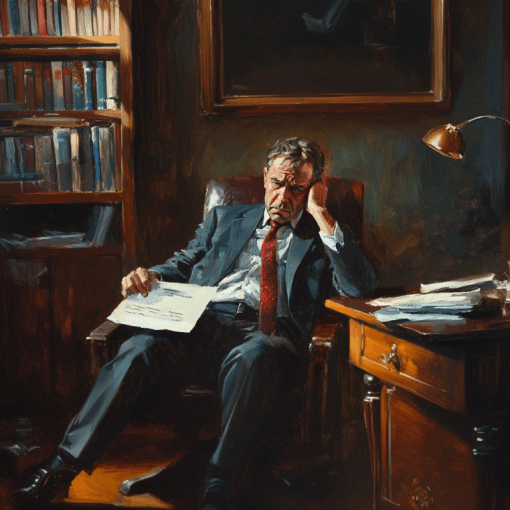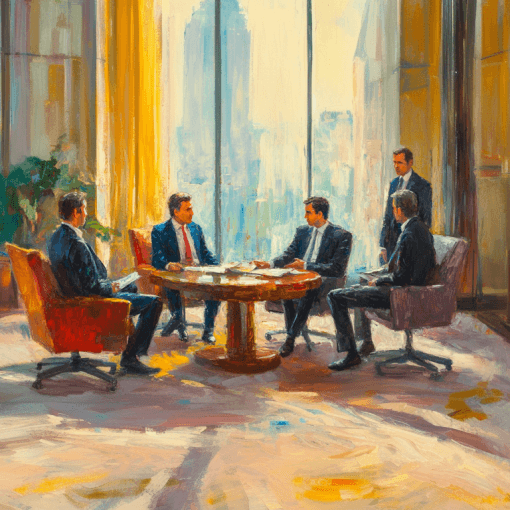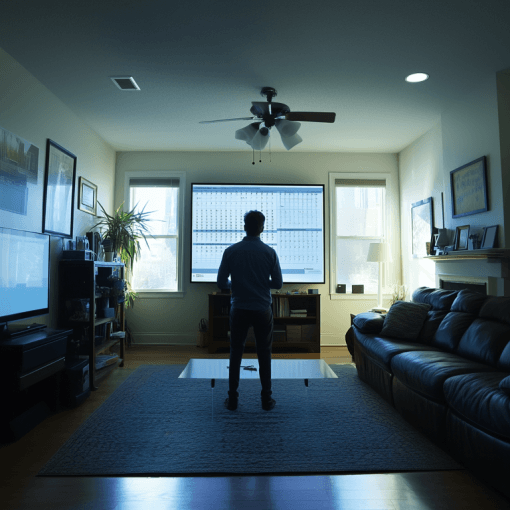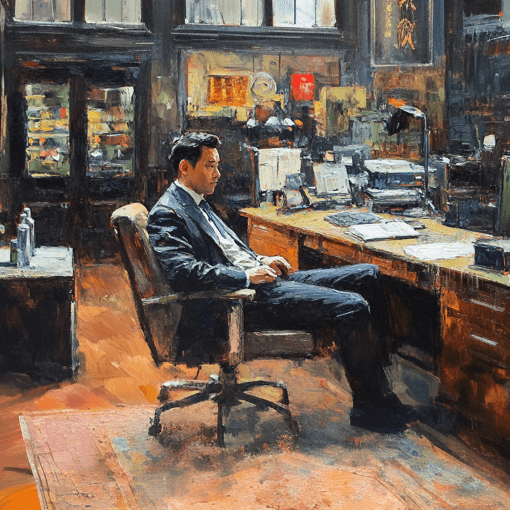Imagine an important witness is gravely ill or very elderly. A trial might be months or years away, and there is a risk this person won’t be able to testify in court when the time comes. A de bene esse examination allows lawyers to question that witness now, under oath, with both sides present. The witness’s testimony is preserved (often on video). If the witness has passed away or cannot attend by the trial date, the recorded testimony can be used in court as if the witness were there, subject to the trial judge’s approval.
In short, it’s an insurance policy for testimony.
The primary purpose of a de bene esse examination is to preserve critical evidence for trial. It is typically used when a party reasonably anticipates that a witness may not be available to testify live at trial due to circumstances like:
- Health or age:
- The witness is elderly, terminally ill, or infirm, raising concern they might pass away or deteriorate before trial.
- Geography:
- The witness is expected to be out of the jurisdiction (e.g. moving or traveling abroad) and unable to attend the trial in Ontario.
- Scheduling or cost:
- It would be very difficult or expensive to secure the witness’s attendance at trial (for instance, an expert based far away).
- Mental capacity:
- There is a risk the witness’s memory or mental capacity may significantly decline (as can happen with progressive illnesses like dementia).
In any such scenario, conducting an examination de bene esse ensures the witness’s testimony is “on the record” in advance, so, when at trial, if the witness indeed cannot appear, the recorded testimony can be tendered as evidence (often by reading in the transcript or playing the video) as if the witness were testifying live.
However, if the witness remains available and able to attend, the deposition might never be used.
- Consent vs. Court Order:
- If all parties agree, you can arrange the examination without going to court;
- If there’s no agreement, you must bring a motion (ask the judge for permission) under Rule 36.01.
- How the examination is done:
- The witness is questioned under oath, with both sides present;
- It works like a mini-trial: first questions, then cross-examination, then re-examination;
- The whole session is transcribed (and often videotaped, if agreed or ordered).
- Who pays the costs:
- Usually the party asking for the de bene esse pays for the court reporter, video, and related expenses.
- Using the evidence at trial:
- If it’s a non-party witness, the recorded testimony can usually be used at trial if the witness is unavailable, without needing another motion;
- If it’s a party or someone close to a party, the trial judge must give permission (or everyone must agree) before that testimony is used;
- The judge always has the final say on whether the evidence will be admitted.
It can be confusing to know which rule applies, since both Rule 34.19 and Rule 36.01 deal with recording a witness’s evidence before trial, but thanks to Honourable Justice Hennessy’s decision in J.M. v. Clouthier (2013), we have a clear explanation of how these two rules differ and when each should be used.
| Rule 34.19 - Videotaping Discovery | Rule 36.01 - Evidence de bene esse | |
|---|---|---|
| Context & Purpose | Lets a party videotape an examination for discovery. Used to keep a video record of pre-trial questioning, often to capture tone/demeanour or as a precaution. | Used when a witness is at risk of being unavailable at trial (ill, elderly, leaving jurisdiction). Purpose is to preserve their testimony for trial use. |
| Scope of Usage | It’s still a discovery: only the examining party asks questions. No cross-examination or re-examination. | It’s a trial-style examination: witness is questioned under oath with full examination, cross-examination, and re-examination, just like in court. |
| Admissibility | Not automatically evidence at trial. Can be used like any discovery transcript (admissions, impeachment). Trial judge decides if the video can be shown as evidence. | Intended to be tendered at trial if the witness can’t attend. Treated as proper trial evidence (subject to trial judge’s rulings). |
| Judicial Discretion | Court has broad discretion to allow videotaping; no strict test of unavailability. Often allowed if it helps preserve the best record without unfairness. | Court grants leave only if Rule 36.01 factors are met (likelihood of unavailability, witness’s health, cost, fairness). A stricter, necessity-based test. |
Notable Case Law on De Bene Esse Examinations
- What happened:
- In a civil lawsuit, the plaintiff relied on an affidavit from Ms. Burns, a terminally ill witness with only months to live;
- The defendants asked to cross-examine her, but plaintiff’s counsel resisted and suggested the request was an “ordeal” for her;
- Defendants then moved to strike her affidavit unless she submitted to cross-examination or a de bene esse examination.
- Legal question:
- Whether Ms. Burns’ affidavit can be allowed and automatically used at trial.
- Held:
- No.
- Ratio:
- Justice Corrick noted procedural irregularities: Ms. Burns herself had not even been served with the motion, so it was adjourned;
- The defendants were entirely appropriate in seeking cross-examination;
- Plaintiff’s counsel acted improperly by
- failing to rely on Rule 36.01,
- characterizing cross-examination as an “ordeal,” to Ms. Burns, and
- claiming he had no control over Ms. Burns when he did.
- What does this case tell us:
- Parties must use the proper rule (Rule 36.01) to preserve evidence of an unavailable witness;
- Opposing parties are entitled to cross-examine, and poor health is not a valid excuse to avoid it, the proper route is a de bene esse examination.
- What happened:
- Roman Catholic Priest Bernard Cloutier was the defendant in this civil lawsuit, he was sent to prison for five years for sexually assaulting four young boys many years ago;
- In this civil lawsuit, the plaintiff in wanted to videotape the defendant’s examination for discovery because the defendant was elderly (71), in poor health, and at higher-than-average risk of being unavailable at trial.
- Legal question:
- Whether the plaintiff can videotape the defendant’s discovery under Rule 34.19 and later tender it at trial if the defendant cannot testify.
- Held:
- Yes.
- Ratio:
- Rule 34.19 allows videotaping of discoveries at the court’s discretion, even if the witness is not yet proven to be unavailable;
- Rule 36.01 is different: it is used for a full de bene esse examination, with cross-examination and re-examination, intended directly for trial use;
- Here, videotaping discovery was a reasonable precaution; there was no prejudice to the defendant, and the video would give the trier of fact a better record than a transcript.
- What does this case tell us:
- Courts may allow videotaping of discoveries under Rule 34.19 as a flexible tool to preserve evidence;
- But this is different from Rule 36.01, which is stricter and requires proof of likely unavailability for a trial-style deposition.
- What happened:
- The plaintiff in this case, got cancer, undergoing chemotherapies;
- The plaintiff asked the court to take her own evidence and that of a U.S.-based expert witness in advance (by video/de bene esse), because she feared her health and fatigue might prevent her from testifying at trial;
- The defence opposed, arguing credibility was central and should be tested live at trial.
- Legal question:
- Whether the plaintiff and her expert’s testimony should be taken before trial (de bene esse) because of health and logistical concerns.
- Held:
- No.
- Ratio:
- Justice Myers found the medical evidence too “thin”, as it only showed a possibility of fatigue, not a likelihood the plaintiff could not testify;
- There was no urgency: trial was not imminent, and testimony could still be preserved later if truly necessary;
- The request looked more like a tactical shortcut to fit the trial into limited days, rather than a genuine need to preserve evidence;
- Credibility was a major issue, so live testimony was preferable.
- What does this case tell us:
- Courts require strong, credible evidence that a witness will likely be unavailable before allowing de bene esse evidence;
- Tactical or premature requests will be denied; the rule is about necessity, not convenience;
- Judges will prefer live testimony if at all possible, especially where credibility is key;
- Justice Myers asked: “After all, what is the harm of recording an examination that might never be needed but will be available if it is needed?” He meant that while on the surface recording seems harmless, the “harm” arises when it is used as a tactic too early, because it risks unfairness, incomplete evidence, or locking in testimony before the trial is ready.
This blog is for general informational purposes only and does not constitute legal advice. For advice on your specific situation, please consult a licensed lawyer.




